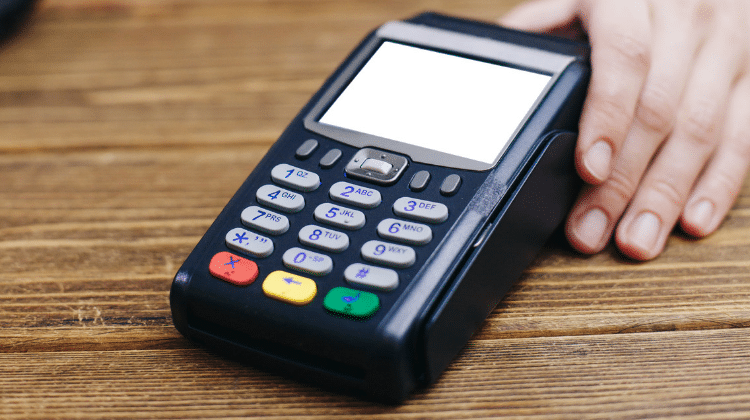
Brought to you by Vend:
Once you’ve decided to purchase a point of sale system, you’re one step closer to turning your business into a well-oiled machine. POS software can transform your business processes, making them more streamlined and efficient. With a good POS system, you can maintain inventory, collect and track customer information and behavior, and of course complete transactions.
There are dozens upon dozens of point of sale software options on the market today. While it’s nice to be able to choose, you want to ensure that you’re making the best decision for your business now and long into the future.
Here are six questions you’ll want to ask before picking a POS system.
1. What features do I need?
POS systems offer all sorts of features and functionality. While some may assume that they’re just fast and advanced cash registers, this couldn’t be any less true. POS systems not only allow your business to accept cash, credit, debit, and mobile payments, these systems also:
- Track inventory
- Maintain a database of customer data
- Help with marketing
- Track employee hours and performance
With so many features available, it’s important to have a good idea of what your business wants and needs from a POS system. Stop and ask yourself what features will most benefit your business, and then find a POS system that meets all of those needs.
2. Is the POS software designed for my industry?
Though some are advertised as such, there isn’t a one-size-fits-all POS system. While there are features that can benefit all industries, it’s important to find a POS system that is designed specifically for your industry.
The fact is that a restaurant needs different features than a retail store. While a restaurant benefits from having a POS system that supports delivery tracking, tipping, and check splitting, a retail store benefits more from having the ability to track inventory and to allow customers to check out using a mobile register.
Finding POS software that’s designed for your specific industry ensures that you have access to important features.
3. What are the associated costs?
One of the first things business owners think about when making a business purchase is the overall cost. When researching POS systems, you will likely come across ones that are advertised as being free. But as we all know, nothing in the business world is free.
Though we all like the word free, read the fine print and you’ll see that what’s free is the software. However, POS systems also require hardware and support in order to keep them operational. So while you may be able to save costs on the software, be aware that you’ll need to purchase a processor, cash register, and possibly tablets to allow for mobile check out.
POS systems also come with other costs, such as monthly support. You’ll also be on the hook for paying monthly credit and debit card processing fees.
4. Is the system easy to use?
Even if a system meets all of your business needs to a T, what’s even more important is how the system functions. You won’t receive employee or customer buy-in if the POS system you choose is clunky and complicated.
When choosing POS software, you want a system that:
- Speeds up the transaction process
- Offers an intuitive and user-friendly interface
- Works even when the system is offline
- Offers product look up and quick keys
A system that is easy to use and understand is more likely to be accepted by all of your stakeholders. To get an idea of how a POS system works, check out live demos or test the system in person.
5. Is the system scalable?
Your business may be small now, but what happens in the future when you grow? When your number of customers increases and sales start to skyrocket, you’ll need your POS system to be able to grow with your company.
This means you want to choose a system that allows you to add new terminals. You may also want to consider finding a system that works internationally, in the event that your company opens a chain in a different country.
A quality POS system will enable your business to grow by offering easy integration into new software solutions. By choosing a scalable system, business growth won’t be stifled, but instead, it will be supported.
6. Is the vendor trustworthy?
Not all POS system vendors are equal. You want to pay close attention to the system’s vendor to see what past customers’ experiences have been. Read online reviews and testimonials. You can even ask your professional network for their opinions on a POS system.
While you may want to spend the lowest amount of money possible, it’s rarely wise to purchase a POS system from a startup company. Don’t disqualify a vendor based on their time in business, but it’s crucial that you recognize the risk and conduct the appropriate research to ensure you’re choosing a solid vendor.
Conclusion
A POS system is the heart of any business. Before deciding which system is most ideal for your business, it’s important to ask questions and to be very aware of what you need and expect out of a POS system. By taking the time to research, you can ensure that you’re making a solid business decision that will benefit you for years to come.